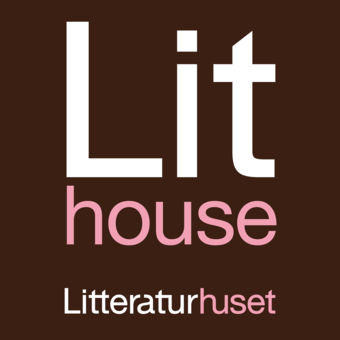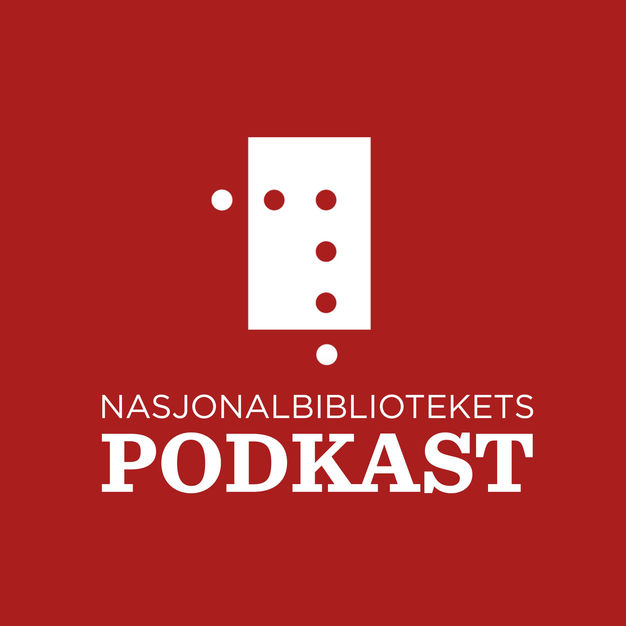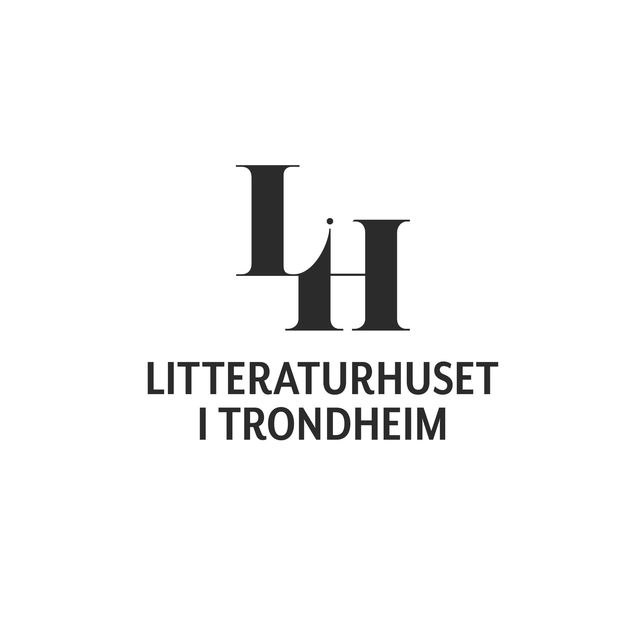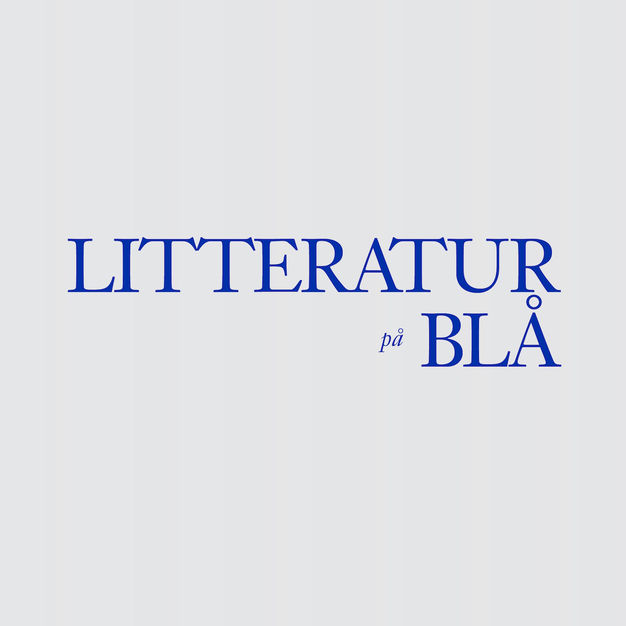
LitHouse podcast
The House of Literature in Oslo - Litteraturhuset
LitHouse is the English language podcast from the House of Literature (Litteraturhuset) in Oslo, presenting adapted versions of lectures and conversations featuring international writers and thinkers.
- 1 hour 2 minutesA Network of Autocrats: Anne Applebaum
The word «dictator» might make you think of a select few evil men of the past, who sat alone on their thrones and ruled far-flung kingdoms with an iron fist. Today’s reality is something very different: The autocrats of the world are playing on the same team, doing deals in secrecy to maintain power and keep their riches. They share troll farms and other resources across political lines, either they’re communists, nationalists, or Shia radicalists, and hide their wealth in tax havens all over the globe. And Western states play along.
This is the current situation, as described by Anne Applebaum in Autocracy, Inc., her new book on the hidden network of autocrats and autocratic regimes that has blossomed since the turn of the century. In the book, Applebaum describes the golden age of dictatorship as she charts the political and economic ties that unite the dictators of the world – often with democratic states as useful idiots or direct facilitators.
Anne Applebaum is one of the world’s foremost authors of history books, among others The Iron Curtain and the groundbreaking Red Famine. Stalin’s War with Ukraine. As a journalist and writer, she is a central voice in the U.S. and Eastern European political scenes and a fierce critic of Western states’ moves away from democratic values and principles.
Nils August Andresen is a historian and editor of the newspaper Minerva. Since his days as a student in Russia, he has been particularly interested in Putin’s rise to power and the threats towards international order.
Applebaum met Andresen on stage for a conversation on the new world order – and how they’re getting away with it.
Hosted on Acast. See acast.com/privacy for more information.
6 January 2025, 6:00 am - 52 minutes 20 secondsA lasting curse: Jennifer Nansubuga Makumbi and Bhakti Shringarpure
When British-Ugandan Jennifer Nansubuga Makumbi wanted her debut novel Kintu published in Europe, publisher after publisher told her no – the novel was “too African”: It was neither about the colonial period nor about Idi Amin, the two things about Uganda that Western readers have heard of. And also, the characters had such complicated names. They couldn’t imagine any European readers would like to learn something new about Uganda and its history.
Makumbi’s novel is an epic family saga, taking us through the history of Uganda – from the kingdom of Buganda before the arrival of the Europeans, and up to today’s society, in which she combines myths and Biblical history with fairytales and oral storytelling tradition. In a distilled, lyrical language, we meet the patriarch Kintu in the mid-eighteenth century, when he is subject to a dark curse, before we follow his many descendants into our own time, where they all, in different ways, struggle with curses of their own. We particularly see how the men of the family struggle to live up to society’s masculine ideals. Maybe this is the real curse, affecting each of their lives and slowly poisoning the entire society?
Kintu is Jennifer Nansubuga Makumbi’s first novel, published in 2014 after she won a manuscript competition by Kenyan Kwani Trust. Makumbi has since published the short story collection Manchester Happened and the novel The First Woman, and she has won a number of awards for her writing.
At the House of Literature, she is joined by author and creative director for the organization Radical Books Collective, Bhakti Shringarpure, for a conversation about a family and a nation, about curses and consolation.
The event was supported by NORAD.
Hosted on Acast. See acast.com/privacy for more information.
15 December 2024, 6:00 am - 1 hour 2 minutesHamlet on the West Bank: Isabella Hammad and Priya Bains
Sonia Nasir is a somewhat successful actor in London. After a distressing end to a love affair, she travels to see her sister in Haifa, Israel, where their father’s family is from, and where she’s hardly been since she was a teenager. Soon, she is pulled into a local theatre production of Shakespeare’s Hamlet on the West Bank. And as the past catches up with Sonia, ghosts appear off stage as well.
Enter Ghost is a complex and skillfully composed novel, an exploration of identity and belonging, the role of art, community, and the painful story of a family and a people.
Isabella Hammad is a British-Palestinian author. Her debut novel The Parisian won a number of awards, including the Betty Trask Award and the Palestine Book Award, and I 2023, she was included on Granta’s prestigious list of Best young British Novelists. Enter Ghost is her second novel.
Priya Bains is a poet, an activist and editor of the literary magazine Vinduet. She will join Hammad for a conversation about ghosts and sisters, Hamlet and the occupation.
Hosted on Acast. See acast.com/privacy for more information.
8 December 2024, 6:00 am - 1 hour 2 minutesThe Turbulence of History: Margaret Atwood and Jenny Erpenbeck
When she began her masterpiece The Handmaid’s Tale in 1984, Margaret Atwood was living in West Berlin, just a stone’s throw away from the Wall to East Berlin, with its omnipresent secret police. The world behind the Iron Curtain clearly influenced her famous future dystopia, in which she set as a rule that she would not include any horrors that humans had not already done in some other place or time in history.
On the other side of the Wall, author Jenny Erpenbeck grew up in the east, the German Democratic Republic (DDR), experiencing the country’s zenith as well as its disintegration and the victorious capitalist West just a few years later. In her award winning body of work, Erpenbeck has gone on to explore the complex history of Germany and greater Europe, where ordinary citizens become hostages to the grand ideas and ruptures of the times.
Both Atwood and Erpenbeck are concerned with totalitarianism, with history and how it informs the present and the future, with our fragile normality, and how quickly it can turn into brutality. While they write lyrical and innovative fiction - incorporating mythology, literature and philosophy - the links to the world around us, either past, present or futures we are headed towards, are always there.
Margaret Atwood has published more than 70 books of poetry, short story collections, novels, children’s books,and essay collections. Stories like The Handmaid’s Tale and the MaddAddam trilogy have made her a name across the world, and a number of her books have been adapted to film, TV, opera and ballet, and, like Erpenbeck, she is regularly mentioned as a favorite for the Nobel prize in literature.
Jenny Erpenbeck is the author of a number of critically acclaimed and award winning novels, short story collections, plays and essays. Her latest novel, Kairos, won the 2024 International Booker Prize.
In this event, these two exceptional authors met for the first time on stage, for a conversation about history and society, memory and hope for the future. The conversation was moderated by Helge Jordheim, professor of cultural history at the University of Oslo.
The conversation took place on November 2st, 2024 in The University of Oslo's Ceremonial Hall.
LitHouse is a podcast from the House of Literature in Oslo, presenting adapted versions of lectures and conversations featuring international writers and thinkers.
Hosted on Acast. See acast.com/privacy for more information.
24 November 2024, 6:00 am - 1 hour 16 minutesThe Literary Prophet: Margaret Atwood
Canadian author Margaret Atwood is a living legend. Since her debut in 1961 with the poetry collection Double Persephone, she has published more than 70 books of poetry, short story collections, novels, children’s books, essay collections and even opera librettos, including the world-renowned novels The Handmaid’s Tale and the MaddAddam trilogy. Atwood has truly made her mark with her literary explorations of totalitarianism, patriarchal structures and environmental destruction, and is known for her almost prophetic speculative fiction, set in societies curbing women’s rights or experiencing a worldwide pandemic or environmental collapse.
In her literature, Atwood is mischievous, fearless and original, frequently incorporating elements from classical texts, fairytales and works by writers like William Shakespeare or George Orwell. While her books often include elements from historical events, they also suggest new worlds and possibilities for the future.
Atwood was joined by journalist and writer Karin Haugen for a conversation about the past and the present, prophetic stories and her unique body of work.
This conversation was hosted by The House of Literature in Oslo and took place on October 31st, 2024 at the Oslo Opera House.
LitHouse is a podcast from The House of Literature in Oslo, presenting adapted versions of lectures and conversations featuring international writers and thinkers.
Music by Apothek.
Hosted on Acast. See acast.com/privacy for more information.
15 November 2024, 6:00 am - 1 hour 2 minutesAfrotopia: The Future of Africa with Felwine Sarr and Andreas Liebe Delsett
How can Africa reach its full potential when Europe is still the blueprint to model oneself after? Not only has centuries of colonization and exploitation stripped the continent of opportunities, but the term “development” has all but become synonymous with following in Europe’s footsteps.
This is the argument of Senegalese academic Felwine Sarr in his book Afrotopia, which has had great influence in academic as well as public discourse. In it, he explores the possibility of a new Africa, with the help of African thinkers, artists and philosophic traditions. Africa needs a utopia, a goal to strive towards, without comparing themselves to others, Sarr says. How might such an afrotopia look?
Felwine Sarr is a leading academic and a prominent voice in public discourse. He is professor in economics at the Gaston-Berger University in Senegal, and professor of French and francophone studies at Duke University, USA, as well as a musician and the author of several novels. Together with the philosopher Achille Mbembe, he has established Les Ateliers De La Pensée, which gathers academics and writers from across Africa and the diaspora. In 2018, commissioned by President Emmanuel Macron, Sarr and the French art historian Bénédicte Savoy authored a seminal report on repatriation of African cultural artifacts from French museums.
Andreas Liebe Delsett is a writer and former artistic director at the House of Literature, currently working on a book about South Africa's recent history.
Hosted on Acast. See acast.com/privacy for more information.
20 October 2024, 5:00 am - 1 hour 14 secondsOn Display: Rachel Cusk and Jessika Gedin
The author of twelve novels, along with a number of non-fiction books and plays, Rachel Cusk is one of our most prominent contemporary writers. Her brave, razor sharp and original voice has made her a favourite with readers and critics alike.
Cusk is a truly innovative writer, pushing the boundaries of the form for each new publication. Already in 2008, when she published her brutally honest depiction of motherhood A Life’s Work, she was miles ahead of contemporary feminist discourse. Her Outline trilogy was considered by many critics a revolution of the novel form.
Her latest novel Parade is no different. Here, Cusk continues her exploration of unconventional structures, delving into the lives of a number of artists all referred to with the initial G. Their stories are told through a nameless narrator moving seamlessly in and out of the different tales. The result is a boldly composed exploration of the role of the artist and what drives someone to create art, a novel about how both art and artist are shaped by society’s gaze. In Parade, Cusk dissects interpersonal relationships and existential questions with precision and clarity.
In The University of Oslo's Ceremonial Hall, Cusk will be joined by journalist and publisher Jessika Gedin, for a conversation about the connections between art and life, about gender roles, the artist and how we human beings are able to live side by side.
Hosted on Acast. See acast.com/privacy for more information.
22 September 2024, 5:00 am - 56 minutes 6 secondsThe Unfree: Persecuted authors and censorship
Lately, much attention has been given to political attacks on prestigious writers. The attempted murder of Salman Rushdie and the deplatforming of Adania Shibli at the Frankfurt Book Fair sparked international outrage and raised awareness of ongoing threats to individual writers today.
Far less attention is given to the fact that across the world, writers are prosecuted and jailed for their supposed dissidence to autocratic regimes. Turkey is among the world leaders in its number of jailed authors, a trend that increases wherever war and conflict can form a forgiving political climate.
What is the effect of political persecution on individual writers? And how does such a climate affect the writers who remain “free”?
For decades, Yasemin Çongar has been one of Turkey’s most renowned journalists and oppositional voices to the Turkish regime. Since 2016, she has herself been on trial for her journalism, and is still fighting a lengthy prison sentence.
In 2018, Çongar also founded the Kıraathane literature house in Istanbul, where she worked as director until March 2023. At Kıraathane, as well as through her work as a translator and writer, Çongar has helped raise awareness of the challenges faced by writers today.
Now, Çongar visits the House of Literature for a philosophical and personal lecture on freedom, creativity, and the transcendent power of literature.
Hosted on Acast. See acast.com/privacy for more information.
11 August 2024, 5:00 am - 32 minutes 46 secondsMy African Reading List: Igoni Barrett
Igoni Barrett is a Nigerian writer of novels and short stories, especially well known for his award-winning novel 2015 Blackass. In 2014, he was named on the Hay Festival's Africa39 list of African writers under 40. Barrett is also part of the House of Literature's artistic council, advising in our project to promote African literature.
This is Igoni Barrett's reading list:
- Abdulrazak Gurnah, Afterlives (Etterliv)
- Zoe Wicomb, You Can’t Get Lost in Cape Town (Ingen går seg vill i Cape Town)
- Toni Morrison, The Bluest Eye (De blåeste øyne)
Jazz
- Alex Haley, Roots (Røtter)
- Ralph Ellison, Invisible Man (Usynlig mann)
- Yambo Ouloguem, Le devoir de violence (Bound To Violence)
- Mohamed Mbougar Sarr, La plus secrète mémoire des hommes (Menneskenes mest fordekte minne)
Hosted on Acast. See acast.com/privacy for more information.
4 August 2024, 7:00 am - 59 minutes 51 secondsA Tangled Family History: Simon Sebag Montefiore and Shazia Majid
What do the Mings, The Rameses’, the Romanovs, the Assads and the Clintons have in common? They are all family dynasties who, for better or worse, have influenced the history of the world.
Historian and writer Simon Sebag Montefiore is a formidable storyteller, and his detailed and engaging works about historical figures such as Catherine the Great, Stalin and the Romanovs have earned him readers across the globe. In his most recent book, The World – A Family History of Humanity, his focus is no less than the entire world history, told through some of the most central family dynasties.
More than an ambitious and grand project, Montefiore’s latest colossal publication is also an exploration and re-thinking of how we tell history. “World history often has themes, not people; biography has people, not themes,” as he writes in the book’s introduction.
By emphasizing the family, he is able to combine the two – the great historical events with the stories of the people in the midst of it all. He also gives more space to the role of women, and tells parts of the world’s history that might not be as well known among most Norwegian and European readers, such as Sundiata Keita’s kingdom in Mali, Itzcoatl and the founding of the Aztek kingdom, and Ashoka and the Mauyrya empire in ancient India.
Diving into world history with Montefiore on stage is Shazia Majid, award-winning journalist and author of the book Ut av skyggene (“Out of the Shadows”), about the first generation of Pakistani migrant workers in Norway.
Hosted on Acast. See acast.com/privacy for more information.
28 July 2024, 5:00 am - 45 minutes 26 secondsFighting mad to tell their story: Jean Rhys and Jamaica Kincaid writing in the aftermath of Jane Eyre
Lecture by Denise DeCaires Narain
This lecture introduces two of the most prolific Caribbean women writers, Jean Rhys and Jamaica Kincaid, comparing their distinctive styles and thematic focus. Both writers have spoken of the significance of Charlotte Brontë’s Jane Eyre in their writing lives and the lecture will explore how this plays out in their work, particularly in their respective engagements with anger and madness.
For many feminist critics, Bertha Mason, Jane Eyre’s “mad woman in the attic, encapsulates the fury of women excluded (or expelled) by patriarchal structures. In this lecture, Denise DeCaires Narain argues that the unique forms that Rhys and Kincaid deploy give shape to that fury in productive and stylish ways.
Denise DeCaires Narain has worked at the University of Sussex for a number of years, where her research has focused especially on Caribbean writers and postcolonial literature. In this lecture, she offers a unique introduction to two of the most prominent writers from the Caribbean: Jean Rhys and Jamaica Kincaid.
Hosted on Acast. See acast.com/privacy for more information.
21 July 2024, 5:00 am - More Episodes? Get the App
Your feedback is valuable to us. Should you encounter any bugs, glitches, lack of functionality or other problems, please email us on [email protected] or join Moon.FM Telegram Group where you can talk directly to the dev team who are happy to answer any queries.
 Sølvberget
Sølvberget
 Nasjonalbiblioteket
Nasjonalbiblioteket
 Litteraturhuset i Trondheim
Litteraturhuset i Trondheim
 Bokbaren
Bokbaren
 Litteratur på Blå
Litteratur på Blå